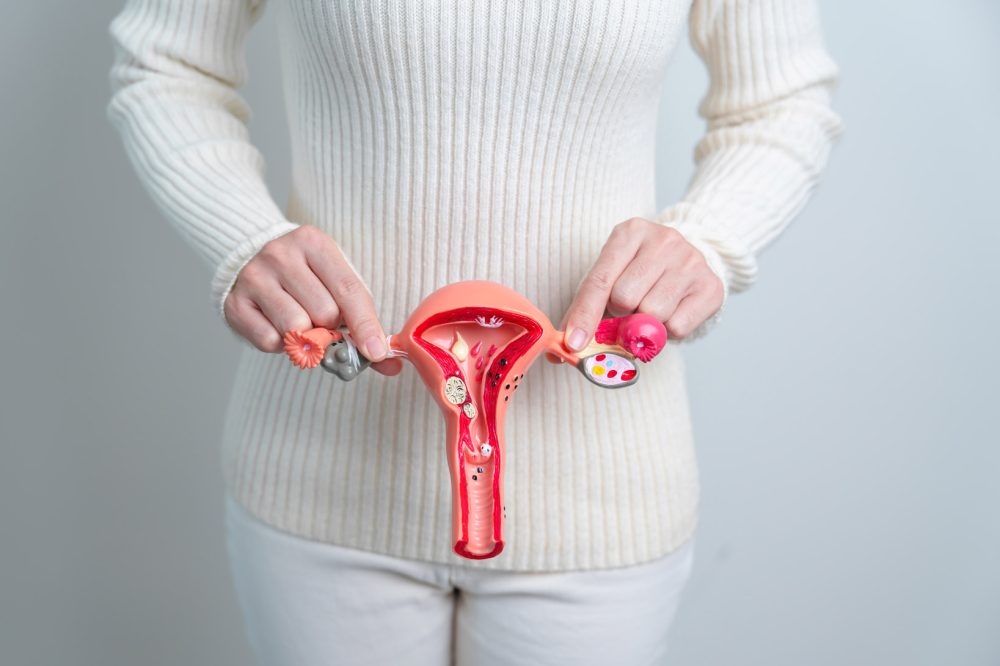Advertisment
Testosterone treatment gives life-altering relief to women going through menopause

Menopause is something almost every woman goes through, but is rarely discussed. Most simply accept the life-altering symptoms like hot flashes, fatigue, brain fog and low sex drive as a fact of life. But experts say there is a simple treatment for menopausal symptoms that is safe and effective, but drastically underused. In fact, a new national survey commissioned by Orlando Health and conducted online by The Harris Poll finds most Americans do not even know it exists as an option to improve symptoms due to menopause for women.
“A lot of people think that testosterone treatments are only something men need, but it helps so many women feel better within days of treatment,” said Terrence Peppy, MD, chief of obstetrics and gynecology for Orlando Health Physician Associates. “They have more energy, they’re sleeping at night and they can get up and do things that they want to do.”
In women, low-dose testosterone is delivered through a pellet injected under the skin during a quick in-office procedure, but the treatment is drastically underused. The survey found that these testosterone treatments ranked lowest (12%) of all interventions known to improve menopausal symptoms. Estrogen treatments are much more commonly known (43%), ranking below only diet and exercise.
Testosterone therapy is felt to significantly treat the nine symptoms commonly associated with menopause including hot flashes, night sweats, anxiety, difficulty sleeping, vaginal dryness, mood swings, brain fog, weight gain and decreased sex drive, while the more commonly used estrogen therapy only treats two. While testosterone therapy is not currently approved by the FDA for use in women, there is growing evidence to support the use of physiologic doses of testosterone in women. A recent publication on the complications of subcutaneous hormone-pellet therapy demonstrated long-term safety. In England and Australia, testosterone has been licensed for use in women for more than 60 years.
“Testosterone pellets are a simple solution and are an option for virtually every patient regardless of their medical condition or history,” Peppy said. “For many, easing symptoms improves their relationships with their partners, gives them energy to exercise and allows them to live their lives as they did before menopause.”
This was the case for Laurie Lane, whose normally fast-paced lifestyle was derailed by progressing fatigue and brain fog. Until she spoke with Dr. Peppy, she was unaware that these major changes to her mood and energy were caused by menopause.
“Nobody says, ‘Here’s the date that menopause is coming, and this is what is going to happen,’” said Lane. “So, over time, I was getting more tired, had no desire to be with my husband, my thinking was foggy, things like that, and I had to put two and two together. I finally realized, ‘Oh, this is menopause. This is what happens to women as we get older. Lucky us.’”
Rather than accepting these symptoms as a fact of life, Laurie asked Dr. Peppy for solutions.
“I was very surprised because I’d always heard about estrogen. I’d never heard about testosterone. And I think one of the big fallacies out there is that women should not be putting testosterone in their bodies,” said Lane. “A lot of women just live with these terrible symptoms, but there’s something you can do, and everybody needs to know about it.”
Laurie is now back to running and feels better than she has in years. She has shared her results with friends and family, many of whom have since started receiving testosterone pellet injections as well, and she encourages all women to speak with their doctor about how they can take control of their symptoms. Dr. Peppy and his colleagues hope that the treatment will become more widely available as more women share their positive results and speak more openly about their experiences throughout menopause.
Testosterone pellets are released into the bloodstream over time and usually provide about three to four months of symptom relief. Before treatment, patients receive a blood test to measure their hormone levels to determine the needed dosage. After finding what works best for each patient and how long the benefits last, most patients schedule their next injection before leaving the doctor’s office.
Survey Method:
This survey was conducted online within the United States by The Harris Poll on behalf of Orlando Health from February 16-21, 2023 among 2,048 U.S. adults ages 18+. The sampling precision of Harris online polls is measured by using a Bayesian credible interval. For this study, the sample data is accurate to within +/- 2.8 percentage points using a 95% confidence level. For complete survey methodology, including weighting variables and subgroup sample sizes, please contact ally@mediasourcetv.com.





